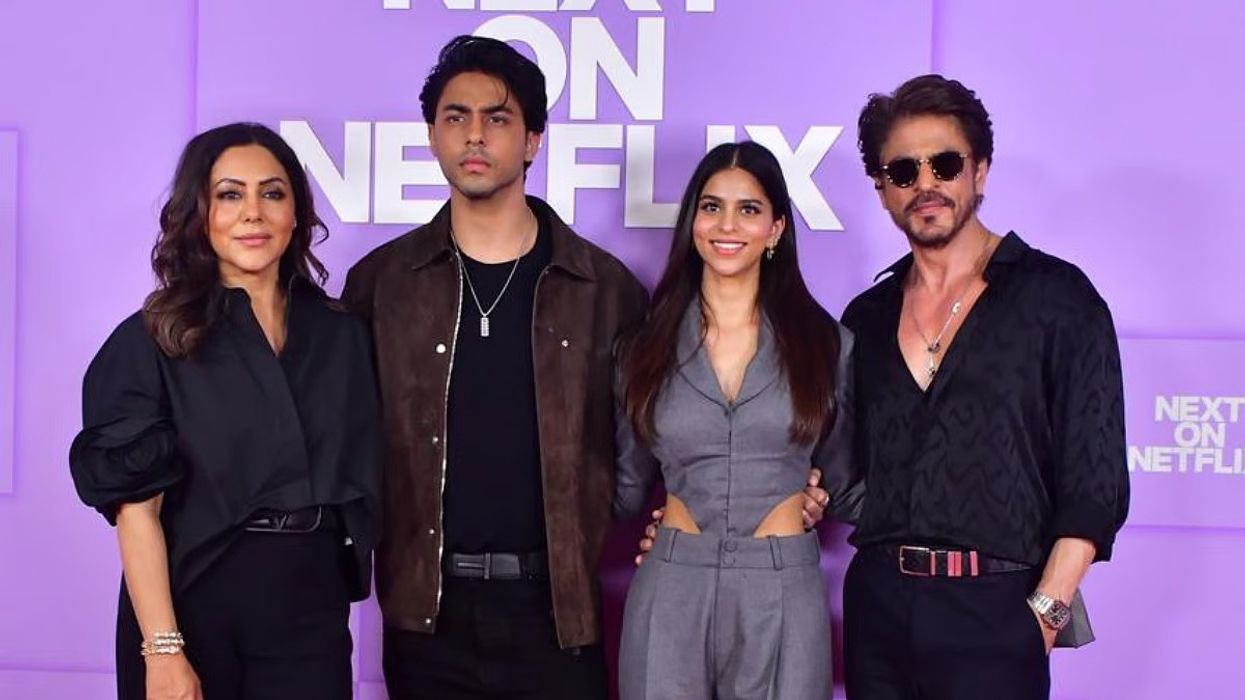SOMETIMES from the depths of despair, artists find a creative outlet which forces them to take chances and expose their own vulnerability.
That Anoushka Shankar did this with her latest release, Love Letters is a triumph of artistic enterprise. Pandit Ravi Shankar’s protégé has long stepped out of her late father’s illustrious shadow - but 2020 seemed to mark another turning point on both a professional and personal level for the sitar icon.
Her album Love Letters was nominated for a Grammy in the Best Global Music Album category. Composed after the break-up of her sevenyear marriage to British film director Joe Wright, it is an album about healing, finding the light in darkness and stepping out into the world again with a renewed sense of hope and optimism.
Moving to the new record label, Mercury KX, she told her new producers about one of the six emblematic tracks Lovable: “Am I still lovable, if you stop loving me? Am I enough, if you don’t want me? It’s the voice of that raw, aching, vulnerability inside us, the one we rarely articulate.”
This profile was written before the Grammys themselves in March but her pride in producing something which has touched so many was bolstered by news that she was being invited by The Grammys themselves to contribute to a composition celebrating the 50th anniversary of the classic Marvin Gaye track, Mercy, Mercy Me (The Ecology), along with others. The interpretations were scheduled to kick off The Grammys on March 14 in a ceremony that would be partially virtual.
Her nomination was announced in November last year and it was reported that she was at home in London about to eat dinner with her two sons, aged nine and five when her phone started tingling.
“My kids gave me five minutes to be excited and then we were back to our normal stuff,” she revealed to the Hindustan Times. Her nine-yearold son texted friends and one of them got slightly confused and wondered how you could win a Granny! she reported to the Times of India.
For the first time in her long career on Love Letters, she uses vocals to accompany her sitar.
There are also significant collaborations with Indian singer Shilpa Rao, a co-written song with cellist Ayanna Witter-Johnson and the French-Cuban duo Ibeyi (on track Loveable) als. “The music had strong female themes beyond the universal elements of ended relationships and broken hearts, so I was particularly looking for strong female voice to incorporate in the music,” she said after her Grammy nomination. It is her seventh in all.
Shankar also featured in the Dalai Lama’s first album. His Inner World released last summer was his first ever recording and comes with an accompanying booklet and was issued to celebrate the holy figure’s 85th birthday. Shankar plays on a track which honours mothers, Ama La. She said it was a huge honour for her to contribute. She met the Dalai Lama first with father when she was young. “It (his voice) was very evocative with his speaking. “It’s so clear what the mood is about…it kind of flowed quite simply to just play over that and try to add a musical enhancement to the words he’s speaking.”
A recipient of 2019’s Eastern Eye’s Arts Culture and Theatre Awards, she has raised her profile within the industry: she is the inaugural president of the F-List – a new directory that spotlights women musicians. Despite the industry being about 50 per cent female, few women headline at festivals or get the attention they deserve. In addition, Shankar was an ambassador for The Walk, which was a charity initiative last year designed to draw attention to the plight of refugees.
There was also a triumphant appearance at the BBC Proms (famously without an audience at The Royal Albert Hall) and her first. This is an artist who isn’t scared to say what she is feeling and continues to have a wide emotional impact and draw on her humanitarian and feminist principles. In some ways, 2020 has been a cathartic year for Shankar. She said of the songs in Love Letters made with producer and vocal collaborator, Alev Lenz: “They’re really about rising through the pain, rather than shutting down.”
Shankar was brought up in India, the UK and the US and started performing with her father when she was 13.














